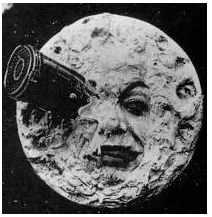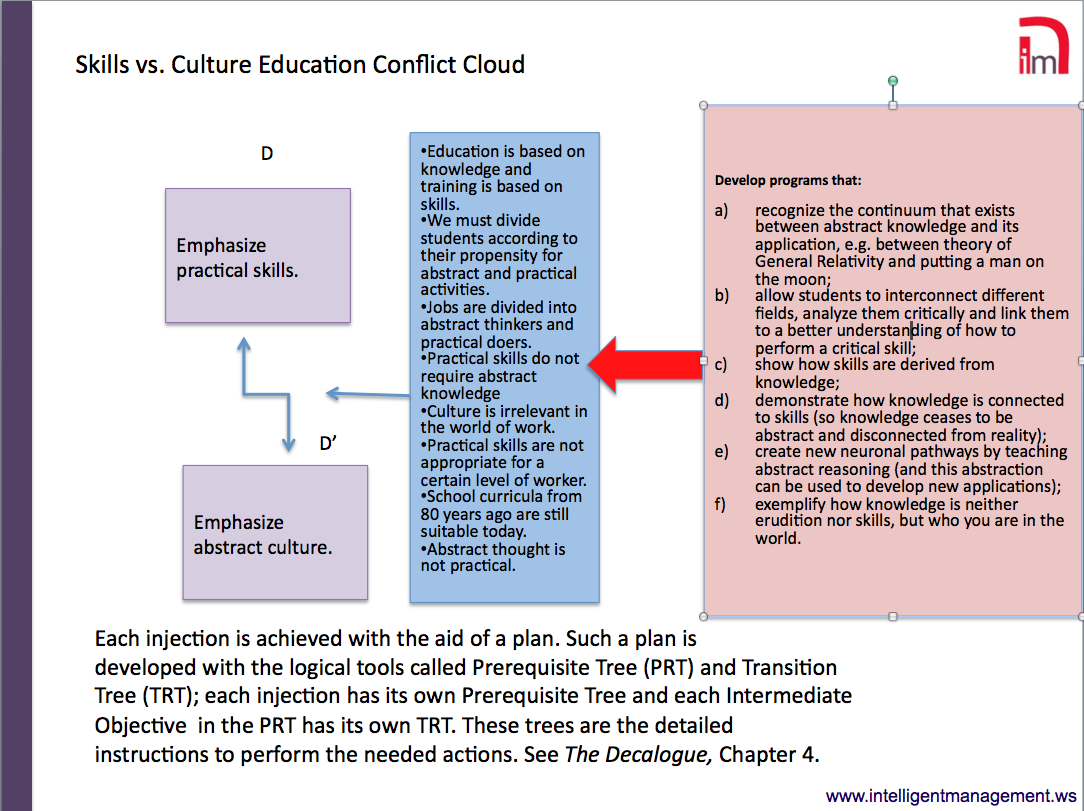 In our previous post we looked at the conflicting positions of a school that emphasizes skills vs. a school that emphasizes culture. The ‘skill school’ protects the need to develop ability to apply skills in a work environment, whereas the ‘culture school’ protects the need to develop the ability to think and analyze in an abstract way.
In our previous post we looked at the conflicting positions of a school that emphasizes skills vs. a school that emphasizes culture. The ‘skill school’ protects the need to develop ability to apply skills in a work environment, whereas the ‘culture school’ protects the need to develop the ability to think and analyze in an abstract way.
In order to emerge from this conflict with an evolved form of school that satisfies both these legitimate needs, we must look at the assumptions (mental models) that underlie the conflict and invalidate them.
These assumptions (see diagram below) are connected with the notion that the abstract is not practical, that culture is irrelevant to certain environments, and that work is divided among those with skills and those who are destined to govern over them. Such notions are completely anachronistic in our post-digital world.
How can we overcome this seeming conflict? Once we invalidate the assumptions, we prepare the path for new possibilities.
Interconnected programs
What if we could develop programs that allow students to interconnect different fields of knowledge, to analyze them critically and to link them to a better understanding of how to perform a critical skill?
Skills would then no longer be things that people learn in isolation from knowledge, and knowledge would cease to be abstract and disconnected from reality.
We may consider abstract knowledge to be a Greek tragedy or a book by Virginia Woolf, while skills may include accounting or cooking. The fact is that, in contrast to the way we were taught at school, there is no clear dividing line between these various forms of knowledge. There is, instead, a continuum between knowledge and its application , between the Theory of General Relativity and putting a man on the moon, and all the new technology that such a feat engenders.
Placing a man on moon is linked to fundamental desires connected with mythology and and the desire for new frontiers. These are concepts that we find in literature, music and art. Whatever is conceivable by the human mind cannot exist in isolation, and therefore it is misleading to teach subjects as if they were completely disconnected from one another. In our complex reality, such silos are no longer appropriate.
Educating the creative mind
The human mind is creative by its very nature. When we recognize this fundamental quality, we recognize the need to nurture our minds cognitively, i.e.both emotionally and rationally, to fulfill their potential. This requires a new kind of intelligence, one that interconnects our intuition, our power of analysis, and our ability to execute based on the creation of a project. New neural connections can be created by teaching abstract reasoning, and this abstraction can be used in turn to develop new applications. It is a cyclic process.
When we look at education in this way, we can understand that knowledge is neither erudition nor skills, but who you are in the world. If schools can stimulate students’ mind to be open and plastic, to learn to interconnect, create and execute, then our schools will produce not just workers and elite, but innovators and leaders.
See also:
Educating for Complexity: How Do We Transform Schools into Centres of Innovation?
Innovation and Education: The School of Evolution
Reality is Not Made Up of Cycles but Complexity: Education and Innovation Pt. 2
Looking at the Core Conflict in Education and Innovation Today (Pt. 3)
Looking at Systemic Solutions for Education and Innovation
Skills vs. Culture – a Conflict in Education and Innovation






Leave a Reply